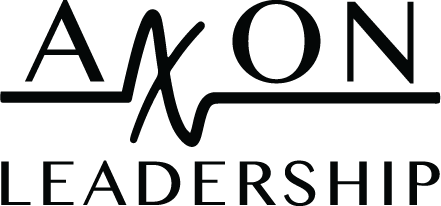The World Needs Vulnerable Leaders
The word “leader” has long conjured an image of a stoic warrior on a battlefield. He has a strong jaw and a stiff upper lip. His armoring is impenetrable. He is ready to attack or defend.
While this vision offers much to be admired and will probably always be an element of leadership, the paradigm is shifting. There is a call for integration of additional qualities, with terms like “compassionate”, “authentic”, and “emotionally resonant” taking hold in the leadership lexicon. Brené Brown, in her viral 2010 TED talk, brought an even more challenging word into the conversation: vulnerability.
This word seems to directly oppose traditional ideas of leadership. Indeed, the root word for vulnerability means “wound”. It’s also related to “Valkyrie”, the name for the female figures in Norse mythology who swooped down over battlefields and marked certain soldiers for death.
While this sounds bleak, vulnerability in the Norse tradition meant the beginning of a new journey. Those selected by the Valkyries were transported to a higher realm, where they feasted with the gods and prepared for a much bigger battle to take place during Ragnarök, a future series of events that would destroy the old world and give rise to the new.
The Valkyries present a metaphor for the potential of vulnerability in leadership. Vulnerability means losing small fights in service of winning the war. It means giving up personal comforts or protections to serve a greater purpose. We see extreme examples in leaders who make history: Nelson Mandela’s 27-year imprisonment for the sake of ending apartheid in South Africa; the physical wounds endured by Malala Yousafzai following an attack on her educational activism, that threatened her life but also lifted her cause onto the world stage.
Few of us face these levels of vulnerability in our work, or this degree of public exposure. More typically the “small fights” are won and lost in the day-to-day grind, with the myriad ways we cover our weaknesses and safeguard the ego. We keep difficult emotions at bay, avoid tough conversations, and try to make ourselves look good, in our own eyes and to other people. This kind of self-protection is natural and nothing to be ashamed of. But it must be challenged when it interferes with a larger mission.
Vulnerability means knowing oneself, wounds and all. Everyone has suffered from life’s inevitable difficulties, and at the hands of other imperfect human beings. We don’t necessarily share those uncomfortable truths about ourselves with all people, in all contexts – sometimes public sharing is incredibly useful, and often it’s not. But whatever our wounds, we can feel them, learn from them, and offer the fuller version of humanity that emerges with this kind of self-knowing.
There is also a power that comes from drawing close to one’s hurts and soft spots. It’s like turning to face the monster in the nightmare, rather than running away. When we plant our feet and get curious about the things that scare us, we have the opportunity to feel our strength. And when we stop running away from ourselves, we develop greater capacity to be with life’s external challenges. We become less rigid and more resilient. As the saying often attributed to Confucius goes, “The green reed which bends in the wind is stronger than the mighty oak which breaks in the storm.”
There are a lot of challenges the next generation of leaders won’t be able to turn away from. Our environmental situation, our global economic, political, and humanitarian issues, will not go away on their own. We need the power that comes from vulnerability. May we learn to bear that mark.
